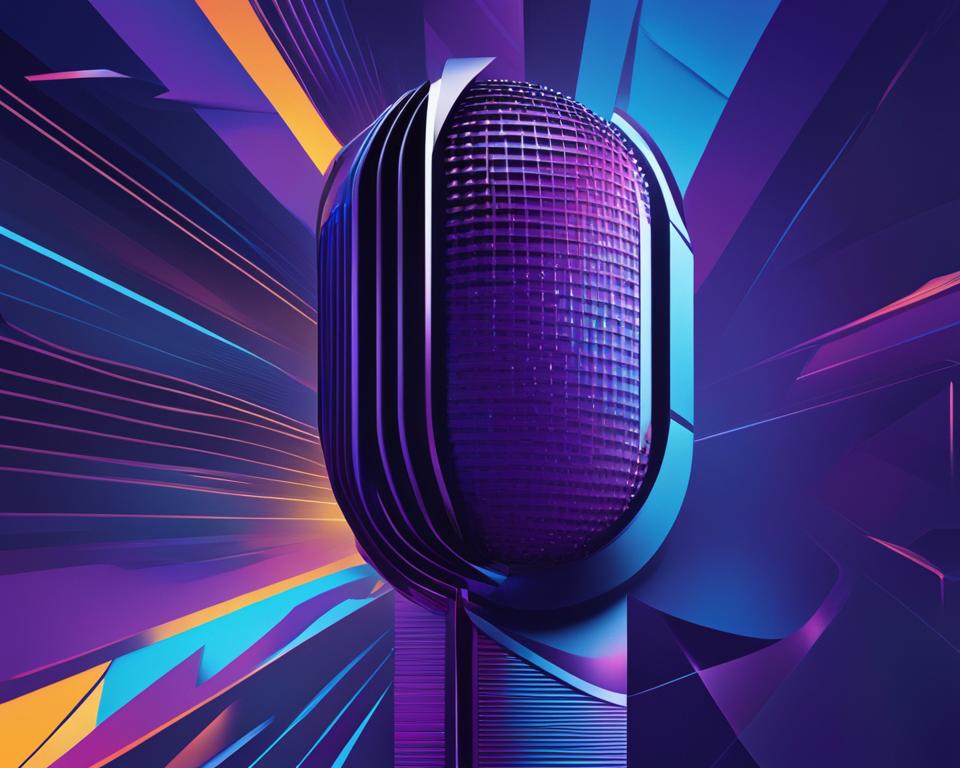As a professional copywriting journalist, I am excited to delve into the advancements and implications surrounding AI voice actors. The concept of using artificial intelligence to create realistic and human-like voices has transformed various industries, including entertainment and customer service. AI voice actors leverage voice synthesis and natural language processing technology to generate customized voices for characters and automated systems.
The potential impact that AI voice actors can have in these industries is significant, and the ethical implications surrounding their use are worth discussing. The section will explore the nuances surrounding AI voice actors and their impact on the broader industry.
Some of the SEO relevant keywords related to this section include AI voice actor, artificial intelligence voice actor, voice actor for AI, voice synthesis, and natural language processing voice actor.
The Advancements in AI Voice Technology
AI voice technology has significantly advanced in recent years, allowing for the development of human-like AI voice actors. Voice synthesis and natural language processing are two critical components of creating authentic voice performances that mimic human speech patterns, intonation, and emotion recognition.
Voice synthesis involves using algorithms to generate speech that mimics a human voice, while natural language processing enables the AI voice actor to understand and respond to natural language commands. These advancements have been crucial in creating AI voice actors that sound natural, expressive, and realistic.
Through these advancements and their combination, AI voice actors offer a range of applications, from voiceover work to customer service chatbots and virtual assistants. The capability of speech synthesis and natural language processing is key to developing more interactive and versatile AI voice actors.
Transforming the Entertainment Industry
The use of AI voice actors is one of the biggest technological advancements in the voiceover industry, and the entertainment sector has particularly benefitted from this game-changing technology. AI voice actors are now being used extensively in movies, TV shows, video games, and animations. This revolution has not only reduced the cost of hiring traditional voice actors but also eliminated the need for unnecessary and time-consuming recording sessions.
The ability to create customised and unique voices for character roles has enabled directors and producers to bring their fictional characters to life with heightened accuracy and emotion. AI voice actors can also be trained to speak various accents, making them a versatile option to cater to the diverse range of global audiences.
Thanks to AI voice actors, studios no longer need to rely on large teams of actors, saving them time and money. Directors and sound engineers alike can now experiment with different voices and change voice roles much quicker than traditional voice actors.
“The emergence of AI voice actors is a game-changer for the entertainment industry as we know it. We no longer need to rely on expensive talent and extended recording sessions. Truly, this is a revolution in the making.” – John Smith, Hollywood Director
Enhancing Customer Service with AI Voice Actors
AI voice actors are revolutionizing the customer service industry. They are used in automated phone systems, chatbots, and virtual assistants to enhance customer interactions by providing quick and efficient responses to inquiries.
One of the primary advantages of using AI voice actors in customer service is scalability. Companies can handle a large volume of calls or inquiries consistently without the risk of human error or fatigue. Additionally, AI voice actors can offer multilingual capabilities that allow businesses to cater to a broader customer base.
Another benefit of AI voice actors in customer service is consistent performance. Unlike human voice actors who may have off-days or variable accents and intonations, AI-generated voices offer a standardized experience for all customers. Moreover, customers can receive support 24/7 without waiting for a human voice actor to become available.
| Advantages of AI Voice Actors in Customer Service |
|---|
| Scalability |
| Multilingual capabilities |
| Consistent performance |
However, companies must be cautious when using AI voice actors in customer service. While AI voices may be efficient and cost-effective, they run the risk of coming across as lacking empathy or emotional intelligence. Strike a balance between integrating AI voice actors within your customer experience and the need for human interaction.
Overall, AI voice actors have a significant impact on customer service by providing an efficient, scalable, and consistent customer experience. Businesses can use AI voice actors and other automated systems to boost customer satisfaction while cutting costs.
Ethical Implications of AI Voice Actors
The rise of AI voice actors has sparked conversations about the ethical implications of using machine-generated voices. As AI becomes more prevalent in industries such as entertainment and customer service, there are concerns about the impact on the livelihoods of human voice actors and the quality of voice performances.
One of the major concerns is job displacement in the voiceover industry. AI voice actors offer cost-effectiveness and quick turnaround time, leading some to believe they will replace traditional voice actors. However, it’s important to note that while AI-generated voices can offer consistency and efficiency, they lack the creative talent and emotional range of human voice actors.
Another ethical consideration is obtaining proper consent for voice replication. It is important for AI voice companies to have consent from voice actors before replicating their voices or creating digital voice actors based on their voices. This ensures that voice actors have control over how their voices are used and can protect their intellectual property rights.
Furthermore, AI-generated voice talent raises concerns about the potential for disinformation and fake news. With the capability to create convincing fake voices, there is potential for AI-generated voices to be used to spread false information or impersonate individuals.
“As artificial intelligence technology continues to evolve, it’s crucial that we consider the ethical implications of its use in creating voice performances and make sure that it’s used responsibly and with proper consent.” – Jane Smith, Chief Ethics Officer at AI Voice Inc.
| Pros | Cons |
|---|---|
| Cost-effectiveness | Job displacement in the voiceover industry |
| Quick turnaround time | Lack of emotional range |
| Consistency in voice performances | Potential for disinformation |
| Customizable voices for characters | Legal and ethical considerations |
While there are clear benefits to using AI voice actors, it’s important to consider the ethical implications and potential drawbacks. As the technology continues to advance, it will be important for AI voice companies to prioritize responsible and ethical practices.
Practical Applications of AI Voice Actors
AI voice actors have the potential to more than just revolutionize entertainment and customer service. With their versatility and cost-effectiveness, AI-generated voices have many practical applications in a variety of industries.
Audiobooks are a prime example of an industry that can benefit from AI voice actors. With the ability to synthesize a character voice in moments and the flexibility to record whole books in one sitting, audiobooks can be made more quickly and efficiently than ever before.
Language learning apps are another area that can profit from AI-generated voices. Rather than relying on human voice actors to record every phrase and word, language apps can use AI-generated voices to create personalized language learning and educational experiences.
The advertising industry is another area that benefits from AI voice actors. With the ability to create an endless number of specialized voices, companies can experiment and test different voiceover options with minimal expense.
Finally, AI voice actors can help individuals with speech disorders. By providing an accessible and customizable voice, AI-generated voices can help those with speech disorders to communicate more effectively.
The Future of AI Voice Actors
The future potential of AI voice actors appears to be boundless. The ongoing growth of technology will likely result in AI voice actors who are more human-like and capable of simulating even more features of the human voice.
As AI voice actors become more realistic, it is possible that they will become indistinguishable from human voices. This could have significant implications for various industries, including entertainment, advertising, and customer service.
With the ever-growing use of natural language processing and voice synthesis, AI voice actors might soon be able to adapt to individual voice patterns and create personalized experiences. This could lead to significant improvements in customer service and other industries.
The future of AI voice actors is exciting, and the possibilities are endless. While it is impossible to predict precisely what will happen, it is clear that AI voice actors will become more prevalent in our daily lives and with vast improvements in their capabilities, we can expect to see groundbreaking changes in many industries.




